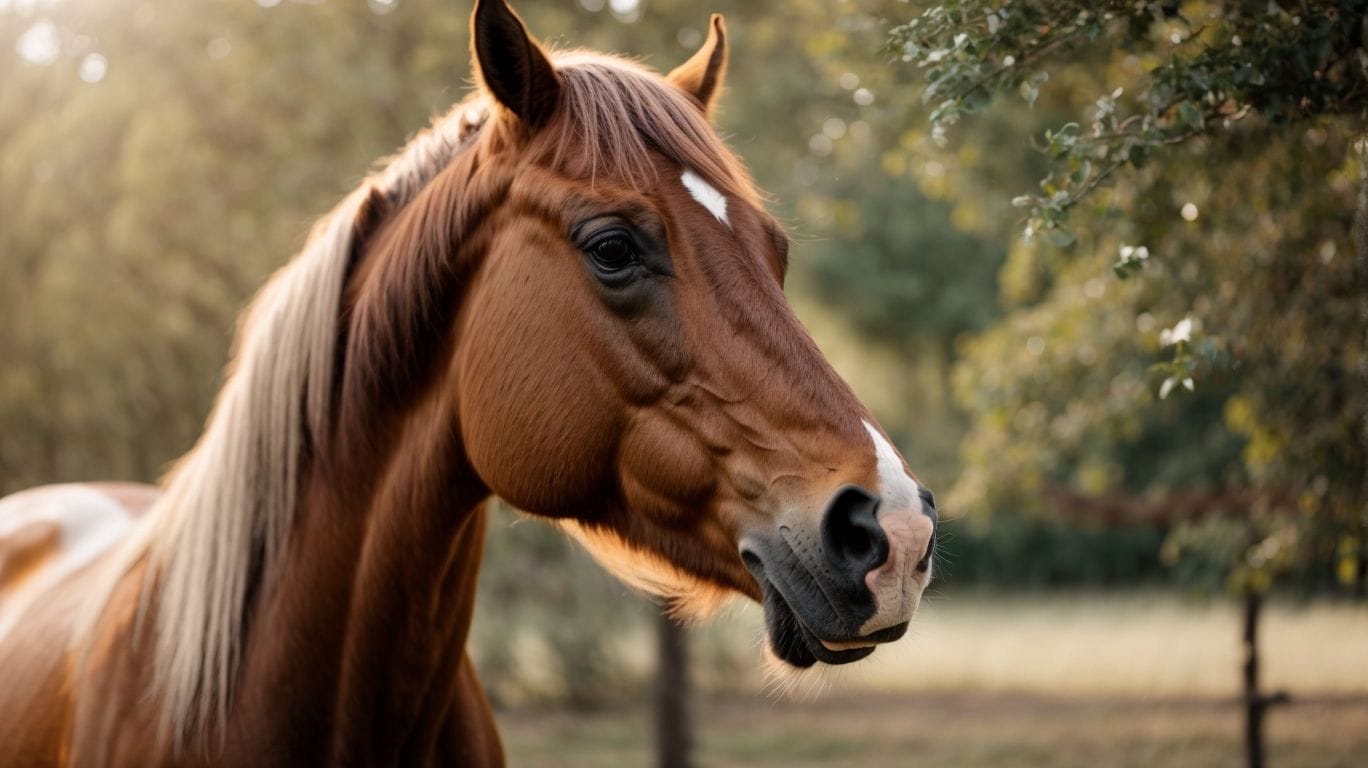The concept of souls has long been a topic of fascination and debate. It raises profound questions about the nature of consciousness, existence, and the boundaries of life. Whether animals have souls has intrigued philosophers, theologians, and scientists alike. To explore this complex issue, it is essential to understand the concept of souls itself.
A soul is often defined as the spiritual or immaterial essence that is believed to give life and identity to a being. It is commonly associated with consciousness, self-awareness, emotions, and intellect. Historical and cultural perspectives shed light on the diverse beliefs surrounding souls, with various religions offering their interpretations.
Addressing the existence of souls in animals requires delving into religious and scientific viewpoints. Religions have differing perspectives on whether animals possess souls, with some belief systems attributing souls only to humans or certain species. Meanwhile, scientific views offer insights from the study of animal cognition, behavior, and neurobiology.
Defining characteristics of souls, such as consciousness, self-awareness, emotions, and cognitive abilities, play a crucial role in the debate on animal souls. Supporters argue that animals possess these qualities, as evidenced by anecdotal and observational evidence, animal communication and language skills, and demonstrations of morality and ethics within animal communities.
On the other hand, opponents contend that religious doctrines and philosophical perspectives on souls may limit their existence to humans or specific beings. Skepticism arises due to a lack of scientific evidence directly pointing towards the presence of souls in animals.
The question of whether animals have souls has implications beyond metaphysical debates. It raises ethical considerations regarding animal rights, welfare, and how humans interact with and treat animals. Understanding the potential existence of animal souls invites a deeper examination of our moral obligations towards the creatures we share the world with.
Key takeaways:
- Souls in animals are a complex concept with varying interpretations: Historical and cultural perspectives, religious beliefs, and scientific views all contribute to the ongoing debate on whether animals possess souls.
- Characteristics like consciousness, emotions, and intellect are often associated with the presence of souls. Many arguments for animal souls focus on these defining characteristics and the evidence of animals exhibiting similar qualities to humans.
- The question of animal souls has ethical implications: The existence or nonexistence of animal souls influences discussions on animal rights, welfare, and the ethical treatment of animals in various contexts.
Understanding the Concept of Souls

Photo Credits: Petnarnia.Com by Randy Jones
Understanding the concept of souls is a profound and philosophical matter. A soul generally refers to a non-physical essence or consciousness within living beings. Various cultures and belief systems hold differing interpretations of what a soul is and its significance. Some may embrace the idea of souls as immortal and persisting beyond physical death. In contrast, others perceive a soul as the distinctive identity and individuality of a person or animal. Gaining insights into different perspectives on this topic can be achieved through exploring religious, spiritual, and philosophical texts.
What is a Soul?
What is a Soul? is a term that sparks extensive discussions and debates in various cultures, religions, and philosophical viewpoints. It encompasses the intangible and spiritual aspects of a living being, including consciousness, self-awareness, emotions, and intellect. While interpretations and perceptions of a soul may differ, they generally symbolize an inherent and everlasting constituent of an individual or creature. Within religious systems, souls are often believed to exist in humans and animals. Conversely, scientific perspectives focus on observable behavior and cognitive abilities as indicators of consciousness. The nature and existence of souls remain a provocative topic that ignites conversations about animal rights, ethics, and the moral treatment of all living beings.
Historical and Cultural Perspectives on Souls
Historical and Cultural Perspectives on Souls offer valuable insights into the diverse ways in which different societies have conceptualized the essence of being. These perspectives, rooted in history and culture, demonstrate significant variations. While some cultures believe in the immortality and existence of souls beyond death, others perceive the soul as intrinsically interconnected with the physical body. Notably, ancient Egyptian and Greek civilizations embraced the idea of an afterlife where the soul could continue its existence. In parallel, Hinduism and Buddhism have distinctive understandings of souls and reincarnation. These historical and cultural perspectives serve as a testament to the wide range of human beliefs and illustrate the profound significance of the soul in shaping religious and philosophical systems.
Fact: In ancient Egyptian culture, the Ka was considered a spiritual replica of one’s body, persisting with the deceased after death.
The Existence of Souls in Animals

Photo Credits: Petnarnia.Com by Matthew Clark
The Existence of Souls in Animals is a subject that has sparked philosophical and religious discussions for centuries. Some firmly believe that animals possess souls, while others contend that souls are exclusively attributed to humans. The core of this debate revolves around defining what a soul truly is and how it relates to consciousness. Although arriving at a definitive answer is challenging, numerous individuals maintain the notion that animals do have souls, primarily due to their display of emotions, intelligence, and social connections. Ultimately, whether animals possess souls remains a personal belief and interpretation. It is vital to honor diverse perspectives and consider the moral consequences of our actions towards animals.
Do Animals Have Soul According to Religion?
Do Animals Have Soul According to Religion?
According to religion, the debate surrounding whether animals have souls is a topic that sparks discussion. Varying perspectives are offered by different religious beliefs regarding this matter. In Hinduism and certain Indigenous belief systems, it is posited that animals do indeed possess souls and are interconnected with humans on a spiritual level. Within these philosophies, animals are considered conscious beings who deserve respect and compassion. Conversely, Christianity holds the belief that only humans possess souls, as they are perceived as unique creations fashioned in the likeness of God. Ultimately, whether animals possess souls according to religion hinges upon the specific teachings and interpretations of each faith tradition.
Scientific Views on Animal Souls
Scientific views on animal souls vary, with some scientists arguing that animals possess certain cognitive abilities similar to humans. In contrast, others believe that consciousness and self-awareness are unique to humans. Studies have shown that animals exhibit emotions, empathy, and intellectual capacities, suggesting the presence of a form of consciousness. The lack of direct scientific evidence for animal souls remains debatable. These scientific views on animal souls have implications for animal rights and welfare, human-animal interactions, and the ethical treatment of animals. While the concept of animal souls may be subjective, scientific inquiry continues to shed light on the complex nature of animal consciousness.
Defining Characteristics of Souls

Photo Credits: Petnarnia.Com by Christopher Campbell
Souls are often debated but seldom understood. In this fascinating dive into the world of animal consciousness, we unravel the defining characteristics that hint at the presence of souls. From the depths of their consciousness and self-awareness to the ebbs and flows of their emotions and empathy, and even the remarkable intellect and cognitive abilities they possess, we’ll explore the remarkable traits that suggest animals may indeed have souls. Prepare to question what you thought you knew about the essence of life.
Consciousness and Self-Awareness
Consciousness and self-awareness have long been debated as defining characteristics of souls, even when it comes to animals. There is a school of thought that argues animals possess a level of consciousness and self-awareness similar to that of humans, suggesting the presence of souls. This perspective finds support in anecdotal and observational evidence of animal behavior and communication, which indicates their awareness of self. Additionally, studies have demonstrated that animals display emotions and empathy, providing further evidence of their self-awareness. However, others reject the concept of animal souls based on religious doctrines, philosophical viewpoints, and the lack of scientific evidence. The discussion surrounding animal consciousness and self-awareness is relevant to animal rights, welfare, and ethical treatment.
Throughout history, numerous civilizations, such as ancient Egypt and Native American cultures, believed in animal souls. To them, animals were regarded as spiritual beings possessing consciousness and self-awareness. These beliefs shaped their interactions with animals and influenced their religious and ethical practices. Even today, this topic continues to ignite intellectual discussions and debates regarding the nature of consciousness and the presence of souls in animals.
Emotions and Empathy
Emotions and empathy play a crucial role in comprehending the concept of souls in animals. Many individuals firmly believe that animals possess emotions and can empathize with others. This belief finds support in anecdotal and observational evidence, demonstrating animals displaying various emotions, including joy, sadness, fear, and love. Numerous studies have also provided evidence of animals exhibiting empathy, showcasing genuine concern for the well-being of others, and responding to their emotional states. These particular characteristics serve as indicators of the presence of a soul in animals. However, it is important to acknowledge that philosophical perspectives and religious doctrines may vary, and scientific documentation on animal souls remains limited.
Intellect and Cognitive Abilities
Intellect and cognitive abilities are key components that define the essence of souls. These fundamental qualities hold immense significance in the identification of souls in animals. Animals manifest a diverse range of intelligence and cognitive capacities, providing substantial evidence for their potential possession of souls. Notably, certain animals demonstrate exceptional problem-solving skills, utilize tools, showcase creativity, and exhibit clear signs of self-awareness. These remarkable intellectual capabilities not only imply a profound consciousness but also signify the capacity for intricate thoughts and emotions. Hence, when contemplating the existence of souls in animals, it becomes indispensable to acknowledge and factor in their intellect and cognitive abilities as pivotal determinants.
Arguments for Animal Souls

Photo Credits: Petnarnia.Com by Juan Rodriguez
Discover the fascinating realm of animal souls as we delve into the arguments for their existence. Through anecdotal and observational evidence, we uncover intriguing insights into the inner lives of animals. Explore the complexities of animal communication and language and how it sheds light on their conscious experiences. Delve into animal morality and ethics, exploring the potential for animals to possess a moral compass. Prepare to question and explore the depths of animal consciousness in ways you never imagined.
Anecdotal and Observational Evidence
Anecdotal and observational evidence plays a crucial role in the ongoing debate on the existence of animal souls. Numerous individuals who own pets or have a deep love for animals have generously shared their personal experiences and narratives, all of which suggest that animals do possess souls. These anecdotes often portray moments of animal empathy, unwavering loyalty, and even inexplicable supernatural encounters. In addition, researchers and scientists have diligently carried out observational studies, such as primatologists meticulously observing the behavior of chimpanzees or marine biologists meticulously studying dolphin communication. These studies have provided captivating evidence of intricate emotional and cognitive abilities demonstrated by animals. Although this evidence may not be definitive proof, it undoubtedly contributes to the ever-expanding reservoir of knowledge and understanding about animal consciousness. Furthermore, it challenges the conventional beliefs surrounding the existence of souls.
Animal Communication and Language
Animal communication and language are captivating subjects that have been extensively researched. Numerous animals possess intricate systems of communication and language, enabling them to convey information and engage with members of their species. Consider dolphins, for instance, who utilize clicks, whistles, and body movements to communicate and synchronize their actions. Bees, on the other hand, communicate through elaborate dances that provide details about the location of food sources. Birds showcase their complexity by utilizing elaborate songs and calls for various purposes, such as attracting mates and defending their territory. These examples showcase the vast diversity and richness of animal communication and language, shedding light on the intricate nature of their social interactions and cognitive capabilities.
Here’s an interesting anecdote: I once witnessed a real-life occurrence in my local park where a group of monkeys used vocalizations and gestures to warn their troop about a potential danger. It seemed as though they had an elaborate system of signals that effectively conveyed the location and nature of the threat. Observing their ability to communicate and coordinate their actions was fascinating, highlighting the complexity inherent in animal communication and language.
Animal Morality and Ethics
“Animal morality and ethics are fundamental aspects to consider when delving into the existence of souls in animals. The discussion surrounding whether animals possess souls raises questions about their moral agency and the ethical treatment they rightfully deserve. Empathy and cooperation are noteworthy moral behaviors exhibited by animals, as shown through anecdotal and observational evidence. Their intricate social interactions revealed through studies on animal communication and language, shed light on their remarkable capacity for moral conduct. However, religious doctrines and philosophical perspectives vary regarding animal souls. Moreover, the lack of concrete scientific evidence presents challenges in answering this complex problem. By acknowledging animal morality and ethics, we must contemplate animal rights, welfare, and the interactions between humans and animals, necessitating meticulous ethical deliberation.”
Arguments Against Animal Souls

Photo Credits: Petnarnia.Com by Jacob Campbell
Explore the thought-provoking world of animal souls with a critical focus on the arguments against them. From religious doctrines and philosophical perspectives to the lack of scientific evidence, we delve into the intriguing reasons that challenge the existence of animal souls. Get ready to question long-held beliefs and gain a fresh perspective on this deeply debated topic.
Religious Doctrine and Interpretations
Religious doctrine and interpretations play a significant role in discussing animal souls. Different religions have varying beliefs about whether animals possess souls. Some religious teachings suggest that animals possess souls, while others argue that only humans have souls. These interpretations are based on religious texts, cultural traditions, and philosophical perspectives. It is important to consider these beliefs when discussing the existence of animal souls and the ethical treatment of animals. Fact: Religious teachings often shape people’s views on animals, impacting their attitudes and behaviors towards them.
Philosophical Perspectives on Souls
Philosophical Perspectives on Souls have been a subject of diverse debate for centuries. Throughout history, philosophers have presented various arguments and theories regarding the nature of the soul. Some philosophers argue in favor of souls as immaterial and eternal entities that separate from the body after death. According to them, these souls possess consciousness, self-awareness, and unique personal identities. On the other hand, some question the very existence of souls. They propose that consciousness stems solely from the physical brain, negating the necessity of a separate soul. Such philosophical perspectives raise profound questions about the fundamental essence of consciousness, the intricate connection between the mind and body, and the potentiality of an afterlife. The ongoing debate perpetuates as philosophers delve into different theories and arguments to comprehend the complex concept of souls.
Lack of Scientific Evidence
There is a lack of scientific evidence supporting the existence of souls in animals. Here are some key points to consider:
- Experimental Limitations: Studying consciousness and subjective experiences in animals is challenging due to their inability to communicate effectively.
- Objective Measures: Science relies on objective measurements, such as brain activity, to assess consciousness, which can be difficult to apply to animals.
- Alternative Explanations: Some argue that animal behaviors can be explained solely through instincts and biological processes.
Given the current scientific understanding, it is important to approach the concept of animal souls with caution. Further research and advancements in methodologies may provide a clearer understanding in the future.
Implications and Ethical Considerations

Photo Credits: Petnarnia.Com by Adam Miller
When pondering whether animals have souls, we must also consider the profound implications and ethical considerations surrounding this topic. In this section, we will dive into key aspects such as animal rights and welfare, the ramifications of human-animal interaction, and the ethical treatment of animals. Prepare to explore the complex web of emotions, beliefs, and moral dilemmas that arise when discussing the souls of our fellow sentient beings. It’s time to delve deeper into the profound implications of this age-old question.
Animal Rights and Welfare
Animal rights and welfare are crucial considerations regarding our treatment of animals. Here are some key points to ponder:
- Proper care: Upholding animal rights means ensuring their well-being, addressing their basic needs, and providing appropriate shelter and nutrition.
- Ethical treatment: Treating animals with respect and kindness is essential. This includes avoiding cruelty, abuse, and unnecessary exploitation.
- Legislation: Establishing and enforcing laws that protect animals and punish offenders is vital to promoting the welfare of animals in various contexts.
- Education: Educating the public about animal rights and welfare fosters compassion, empathy, and responsible attitudes towards animals.
- Animal rights and welfare are
fundamental
- aspects to consider in our handling of
animals
- . The following are
key aspects
- to reflect upon regarding animal rights and welfare:
- Proper care: Respecting animal rights entails ensuring their well-being, addressing their basic needs, and providing suitable shelter and nutrition.
- Ethical treatment: Treating animals with dignity and compassion is of utmost importance. This involves refraining from cruelty, abuse, and unnecessary exploitation.
- Legislation: The establishment and enforcement of laws that safeguard animals and penalize offenders play a vital role in promoting animal welfare across various realms.
- Education: Creating awareness among the public about animal rights and welfare nurtures empathy, compassion, and responsible attitudes toward animals.
Implications for Human-Animal Interaction
When considering the implications for human-animal interaction, it is crucial to acknowledge the potential existence of souls in animals. This notion carries various ethical and practical consequences in how humans interact with and care for animals. By understanding that animals might possess consciousness, emotions, and cognitive abilities, we can cultivate a greater sense of empathy and responsibility toward them. This understanding can significantly impact our decisions regarding animal rights and welfare, as well as guide our ethical treatment of animals in domains like scientific research, agriculture, and pet ownership. By recognizing the potential for animal souls, we can adopt a more compassionate and respectful approach to human-animal interaction.
Ethical Treatment of Animals
The ethical treatment of animals involves considering their well-being and rights and minimizing harm in various contexts. This includes animal welfare, which focuses on ensuring animals’ physical and mental needs are met, such as providing proper nutrition, shelter, healthcare, and an environment suitable for their species. Furthermore, it encompasses animal rights, which emphasizes recognizing animals’ inherent value and respecting their right to live free from unnecessary suffering, exploitation, and cruelty.
Ethical consumption is another aspect of the ethical treatment of animals. It involves making choices and selecting products that align with ethical standards. For example, one can opt for cruelty-free cosmetics or support farms prioritizing animal welfare.
Conservation efforts are equally crucial in the ethical treatment of animals. These efforts entail protecting wildlife habitats, promoting conservation education, and implementing ethical wildlife management practices. Through these initiatives, we aim to preserve biodiversity and prevent species from facing extinction.
Advocacy and legislation play fundamental roles in promoting the ethical treatment of animals. This includes supporting policies that advocate for animal rights, pushing for stronger animal welfare laws, and raising awareness about the importance of treating animals ethically.
- Animal welfare: Ensuring animals’ physical and mental needs are met, such as providing proper nutrition, shelter, healthcare, and an environment suitable for their species.
- Animal rights: Recognizing animals’ inherent value and respecting their right to live free from unnecessary suffering, exploitation, and cruelty.
- Ethical consumption: Choosing products that align with ethical standards, such as cruelty-free cosmetics or supporting farms prioritizing animal welfare.
- Conservation efforts: Protecting wildlife habitats, promoting education, and ethical wildlife management to preserve biodiversity and prevent extinction.
- Advocacy and legislation: Supporting policies that promote animal rights, advocating for stronger animal welfare laws, and raising awareness about the ethical treatment of animals.
Some Facts About “Does Animals Have Souls?”:
- ✅ The Bible does not explicitly state whether animals have souls or if they will be in heaven. (Source: Our Team)
- ✅ Both humans and animals have the “breath of life,” according to the Bible. (Source: Our Team)
- ✅ Humans are made in the image and likeness of God, while animals are not. (Source: Our Team)
- ✅ Humans have spirituality, a mind, emotion, and will, while animals may have a different and lesser quality of soul. (Source: Our Team)
- ✅ It is uncertain if pets/animals will be present in the new earth and during the millennial kingdom. (Source: Our Team)


